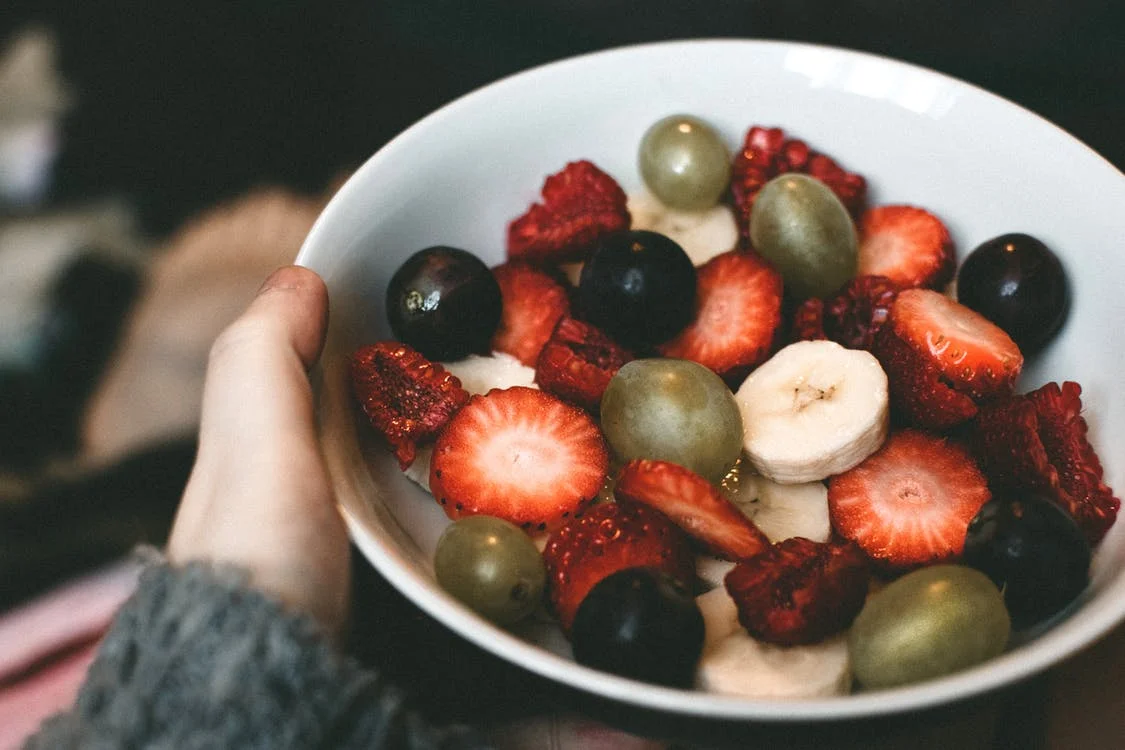Welcome back!
Today we are picking up right where we left off with educational nutrition series and focusing on the importance of nutrition postpartum and during breastfeeding. Even though we live in a very fast-paced, go-go-go society, the period after birth is a sacred time meant for physical, emotional, and spiritual rest, as well as recovery from labor.
The First Forty Days
One of the most important time periods of your pregnancy will actually occur once your baby has already entered the world- your postpartum period. That being said, the first forty days after birth is an essential time of deep rest and physical recovery. In the past nine months your focus was on making sure you got the right nutrients and right amounts to support the growth and development of your baby. Now the focus is on making sure you are eating in a way that nourishes your own body.
Recent research has found that there is a distinct connection between nutrient depletion and a decreased production of key mood-regulating neurotransmitters, like serotonin. Low levels of folate, vitamin D, iron, zinc, fats (discussed in blog 3!) during pregnancy and following birth have all been associated with a higher risk of postpartum depression.
Can my diet go back to normal now?
Just like during pregnancy, your diet will need to be structured with nutrient-dense foods before you bounce back completely to your diet before pregnancy. During breastfeeding you will need extra calories to compensate for your own recovery and for feeding your baby. If you’re breastfeeding you’ll burn through an extra 500 calories per day. It is recommended that you aim for at least 300 - 500 extra calories a day during this time. Protein is a huge component of these extra calories- you’ll need an extra 25 grams, which looks like a total of 70 to 80 grams per day. Protein is essential for your postpartum recovery and the growth and repair of your cells. In addition, your baby needs protein for cell growth and developing immune functions. Another nutrient to focus on is calcium. Your baby needs enough calcium for their growing bones and your low estrogen levels during nursing can put your bones at risk for osteoporosis.
Another common worry when breastfeeding is that babies may develop allergies when feeding. The truth is that allergies in babies are less common than you might think. Just because your baby is fussy during or after feeding does not necessary mean they have a food insensitivity. Most often they are fussy because their gastrointestinal system is not quite mature yet. Consult your pediatrician if there are any symptoms of excessive spitting up, reflux or bloody stools. If you need to cut dairy or other key nutrients from your diet, make sure to stock up on other calcium-rich foods or take a recommended supplement to balance.
Certain foods and substances were off the table during pregnancy, so are they back on for breastfeeding? One topic that is questioned often is alcohol consumption during breastfeeding. The recommendation is to drink in small amounts and in moderation, according to research. Alcohol can enter your breastmilk in small amounts, so it is recommended to wait about two to three hours after a drink to breastfeed or before you enjoy that glass of wine. A good rule of thumb is: if you’re safe to drive, you’re safe to breastfeed!
Recommendations:
Stay hydrated!
Just as we mentioned in the last blog, staying hydrated is SO SO important!
Water helps support the rebuilding your tissues are doing and promotes recovery of your muscles and proper organ functioning.
Not only is it important to your own physical recovery, but it is vital for producing breast milk.
At least 10 to 15 glasses a day are required to quench your own thirst and produce enough breast milk.
Structure your diet with nutrient-dense, anti-inflammatory foods
Focus on colorful produce, healthy proteins, fats and whole grains to prevent inflammation
New research from John Hopkins concluded that inflammation can be linked to depression symptoms- doctors believe this is due to the role the enteric nervous system (ENS) plays in controlling your digestion and communicating with the brain, which may trigger emotional shifts when your gut just doesn’t feel right.
Consider adding anti-inflammatory foods like darky leafy greens, melons and berries, iron-rich proteins like grass-fed beef, healthy fats like coconut oil or avocado oil.
Eat collagen-rich foods
Collagen is a superfood that works to help rebuild your tissues.
Some moms even say collagen helps with postpartum hair loss!
You can find collagen in dark leafy greens like spinach or kale, in omega-3 rich fish like mackerel, salmon or tuna, and in a variety of antioxidant berries and even in garlic!
Take advantage of easy, warm, and nutritious meals
This means all of those yummy soups, stews and easy crockpot/ instapot meals you love!
Reach out to family and friends if you are too tired and could use some help in the meal department! (others have been there too, so don’t be afraid to ask for help!)
Thanks again for tuning in this week to discuss postpartum and breastfeeding nutrition! We welcome you to ask any question you may have from this series- we’re here for you! Join us next week as we wrap up this blog series!
Warmly,
Lauren

